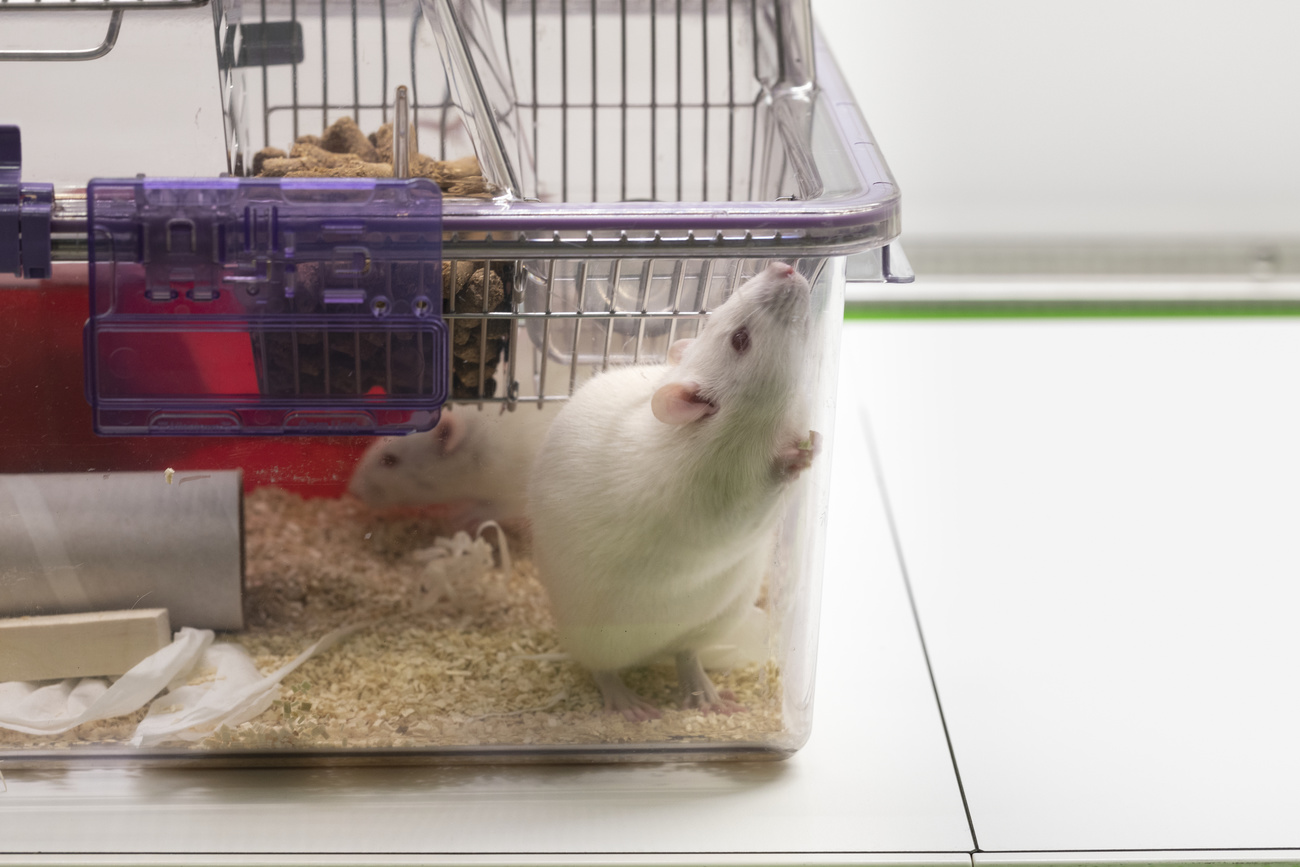
Animal testing drops in Switzerland despite Covid research
Switzerland’s use of animals for medical experiments decreased in 2020 despite an uptick in painful experiments and animal testing being a feature of Covid-19 research efforts.

Approximately 556,000 animals were used for experimental purposes in Switzerland last year, according to statistics compiled by the Federal Office for Food Safety and Veterinary Affairs (FVOV). That figure represents a drop of 2.8% compared to 2019 and a decrease of 18% relative to 2015, when the downward trend started.
Restrictions imposed by the government to deal with the Covid-19 pandemic meant certain experiments could not be conducted as planned in 2020. Covid-19 research meant 1,328 animals were used in 18 authorised trials. Ten experiments were for basic vaccine research. Five focused on immunology, while the remaining three focused on virus transmission. All together, they made up a small portion (0.2%) of all animal experiments conducted that year.
Most of the animals used in Covid-19 research were subjected to degree 1 stress.
Animal protection legislation distinguishes four categories of duress. Grade 0 experiments are considered to be stress free, as is the case for observational studies. Grade 1 experiments cause light and short-lived pain. Grade 3 causes severe pain to the animals.
Painful experiments on the rise
In 2020, approximately 12,500 fewer Grade 2 tests were performed compared to 2019 (-8%). This is the first decline observed since 2012 for this category. Conversely, about 1,400 more animals were subjected to degree 3 experiments (+7.8%). At the same time, about 5,000 fewer animals were tested in the lowest severity grades 0 and 1 (-1.2%).
Cantonal authorities decide whether animal experiments may be conducted for scientific research purposes. Researchers must prove there is no alternative to the use of animals and that the experiments will cause these living beings the least harm possible, with the suffering justified by the overriding interests of society or the environment.

In compliance with the JTI standards
More: SWI swissinfo.ch certified by the Journalism Trust Initiative

















![The four-metre-long painting "Sonntag der Bergbauern" [Sunday of the Mountain Farmers, 1923-24/26] had to be removed by a crane from the German Chancellery in Berlin for the exhibition in Bern.](https://www.swissinfo.ch/content/wp-content/uploads/sites/13/2025/12/01_Pressebild_KirchnerxKirchner.jpg?ver=a45b19f3)











You can find an overview of ongoing debates with our journalists here . Please join us!
If you want to start a conversation about a topic raised in this article or want to report factual errors, email us at english@swissinfo.ch.